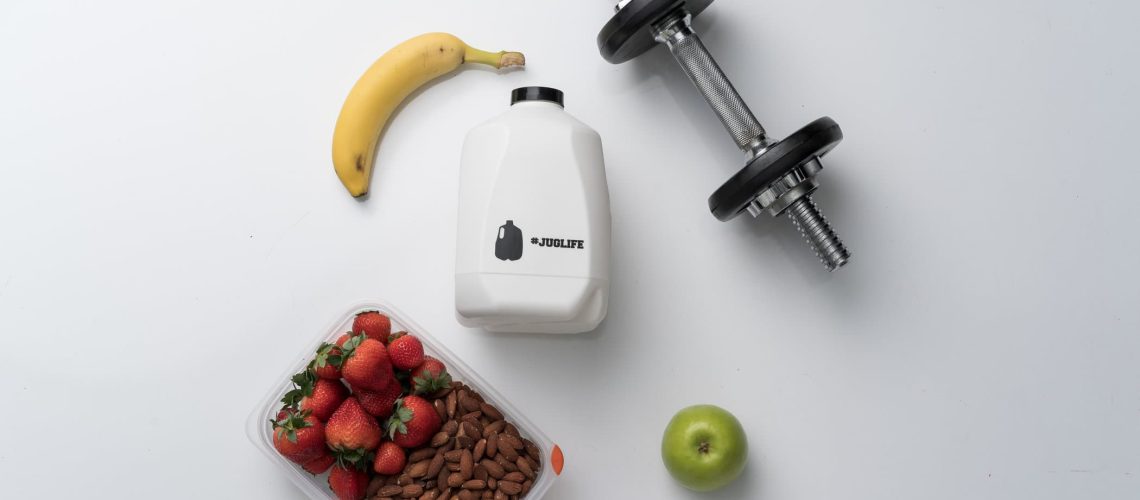5 Natural Ways to Improve Your Digestion
If you want to experience your highest potential for health and fitness, good digestion is absolutely key. Digestion is your body’s process for converting nutrients from food and water into the usable energy. It gives you what you need to fuel your physical performance, cognitive function, and overall well-being.
Like breathing or your heartbeat, the magic of digestion really happens behind the scenes. Once you’ve chewed and swallowed your food, your brain takes the lead to move and transform whatever you’ve eaten or had to drink. So how exactly can you make improvements to a process that happens automatically?
Luckily, influencing our body’s vital autonomic process is often attainable through a few simple lifestyle tweaks. Just like you can “mindfully take a few deep breaths” to regroup and chill out (more on that later), you can positively influence your gut health with conscious choices and habits. Here are 5 tips for improving your digestive health, which you’ll find easy enough to start practicing today.
1. Stay hydrated.
Like the rest of your body and brain, the optimum function of your digestive system completely depends on good hydration. While low fluid intake is associated with the no-fun situation of constipation, drinking enough water helps keep your digestive system properly flushed and lubricated. As an added bonus, drinking water before your meals can help you avoid overeating (and overworking your digestive system) by helping you feel satisfied and full.
Tip: Sip water upon waking, between meals, and before, during, and after your sweat sessions to support the health of your digestive system and maintain a healthy weight.
2. Eat more whole foods.
Alongside nourishing your brain and your body, whole foods also nourish and regulate the trillions of bacteria that help make up your gut microbiota. Many whole foods—such as fruits, vegetables, nuts, seeds, whole grains, and legumes—are also rich in dietary fiber, which helps to “scrub” your digestive tract, encourage downward movement, and add bulk to your stool for easy elimination.
Tip: Try switching out one or more processed meals, ingredients, or snacks for ones that are homemade, minimally processed, and fresh.
3. Stick to a fitness routine
Regular exercise benefits every single system of your body, and your gastrointestinal tract is no exception. Exercise gets you and your digestive system moving, which encourages an efficient “gut transit” while helping to stave off symptoms of sluggish digestion, constipation, and gut inflammation.
Tip: Alongside developing a plan for x number of exercise a week, try taking a walk after you eat your biggest meal of the day to support healthy digestion, boost your mood and energy, and reduce stress.
4. Soothe stress.
Stress is a normal part of the human experience, and your body is totally designed to overcome the challenge. When you’re up against a physically or mentally challenging situation, your brain releases stress hormones and directs blood and energy away from your digestive system and into your muscles and brain for quick action. The flip side? Your body equally needs to recover in between stressful situations. When the challenge has passed, your brain diverts blood and energy to your digestive organs, where they’ll continue their vital work of giving your body what it needs to feed and repair itself.
Tip: Knowing that ongoing stress interferes with good digestion, give yourself permission to press pause and reset when you’ve got a lot on your plate. Though it sounds too easy to be true, taking a few belly breaths (also known as diaphragmatic breaths) can soothe your nervous system and your digestive tract. As you inhale, your diaphragm descends into your abdominal cavity and essentially “massages” your abdominal organs (and who couldn’t use a massage when stressing?).
5. Slow down.
Speaking of enjoying a mindful moment, how you eat your food can equally encourage better digestion. Digestion begins in your mouth, when your teeth and enzymes in your saliva start breaking down food into smaller, squishier bits for easier processing. Additionally, feelings of fullness don’t usually kick in for 20 minutes from the time you start eating. Taking time to chew slowly can help prevent overeating—and the extra digestive work that’s needed when you’ve had extra food to eat.
Tip: Make it a habit to sit down and really enjoy your food with all five of your senses. Take a deep breath between bites, chew well.
